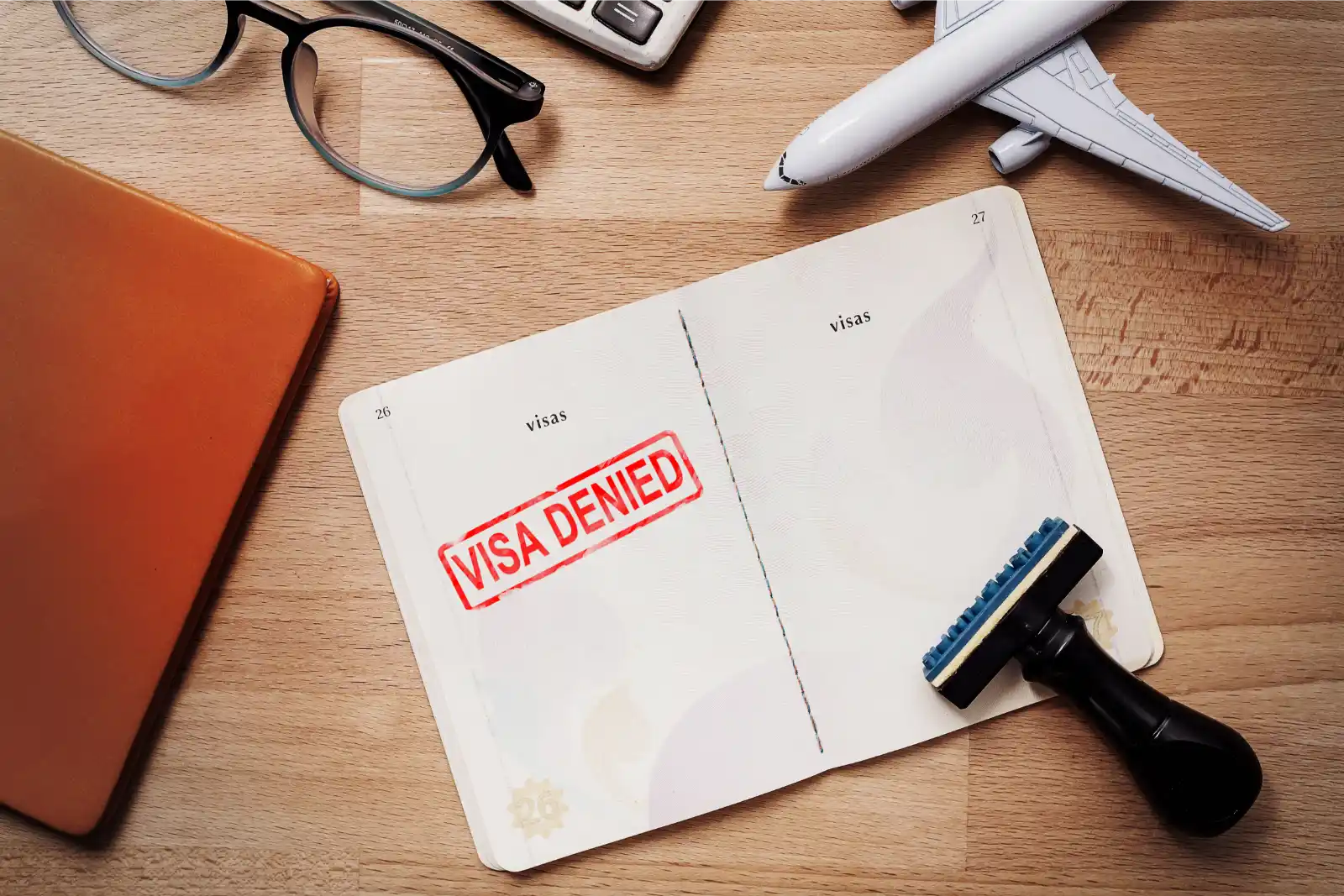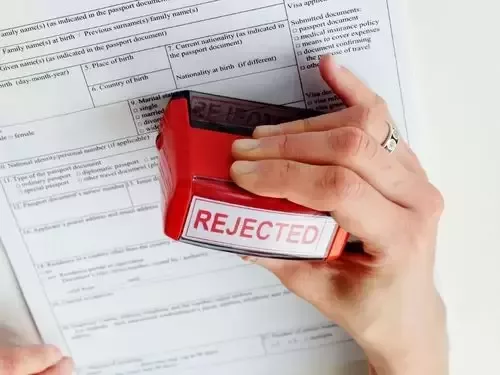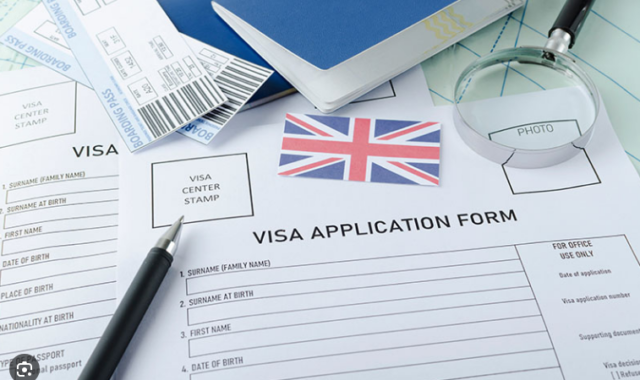UK Visa Refusal Reasons
The United Kingdom has always been a popular destination for travelers, whether it be for tourism, business or to visit family and friends. However, obtaining a UK visa can be a complicated process and one of the biggest challenges that many people face is having their visa application refused. This can be incredibly frustrating, especially if you have spent time and money preparing for your trip.
In this guide, we will explore the common reasons why UK visas are refused and what steps you can take to avoid these issues. We will also provide tips on how to increase your chances of getting your visa approved. Understanding the reasons behind visa refusals can help you prepare a strong application and save yourself from disappointment and future rejections.
What is a UK Visa Refusal?
A UK visa refusal is when the UK authorities deny an individual’s application for a visa to enter the country. This means that the person will not be granted entry into the UK and will not be allowed to stay there for their intended purpose.
There are various types of UK visas, including tourist visas, work visas, study visas, and family visit visas. Each type has its own set of requirements and eligibility criteria. If any of these criteria are not met or if there are concerns about the applicant’s intentions in visiting the UK, the visa may be refused.
It is important to note that a visa refusal does not necessarily mean that you will never be able to enter the UK. You can reapply for a visa after addressing the concerns raised in your previous application.
Common Reasons for UK Visa Refusals

Here are some of the most common reasons why UK visas may be refused:
Insufficient funds
One of the primary reasons for UK visa refusals is insufficient funds. The UK authorities require visa applicants to demonstrate that they can financially support themselves during their stay without recourse to public funds.
This includes covering costs such as accommodation, travel, and daily expenses. The specific amount needed varies depending on the type of visa and duration of stay. Applicants must provide recent bank statements or financial documentation as proof of their funds, ensuring that they reflect a stable financial situation.
If the available funds are deemed inadequate, the application may be rejected. To strengthen your application, it’s crucial to prepare comprehensive financial documentation, ensuring that it meets the requirements laid out for the visa category you are applying for.
Incomplete or incorrect documentation
Another common reason for UK visa refusals is incomplete or incorrect documentation. It is essential to carefully review the requirements for your particular visa and ensure that all necessary documents are included in your application.
Missing or incorrect information can raise suspicion about the validity of your application and lead to a refusal. It is also crucial to submit original copies of documents, as photocopies may not be accepted.
To avoid this issue, it’s always best to consult with a qualified immigration lawyer or advisor who can help you gather and organize the required documents correctly.
Lack of evidence to support the purpose of visit
When applying for a UK visa, applicants must provide evidence supporting their intended purpose of visit. For example, if you are applying for a tourist visa, you may need to provide evidence of hotel bookings, tour itineraries, and proof of ties to your home country.
If the purpose of your visit is not clear or if there is insufficient evidence provided, the application may be refused. To avoid this issue, make sure to thoroughly research and prepare all necessary documents that clearly outline the purpose and details of your trip.
It’s also crucial to ensure that all information provided is accurate and consistent across all documents submitted.
Previous immigration or criminal history
Past immigration or criminal history can also be a significant factor in UK visa refusals. If an applicant has previously overstayed a visa, violated immigration laws, or has a criminal record, this information may lead to the refusal of their current application.
To avoid this issue, it’s crucial to disclose any previous immigration or criminal history and provide any necessary documentation that explains the circumstances surrounding these events. It may also be helpful to seek guidance from an immigration lawyer on how to address these issues in your application.
Plus, being transparent and upfront about your history can demonstrate your honesty and intention to comply with immigration laws, potentially increasing your chances of getting your visa approved.
Failure to meet the English language requirements (if applicable)
For certain visa categories, such as work or study visas, applicants may be required to demonstrate their proficiency in the English language. This can be done by passing an approved English language test or providing evidence of previous education or work experience in an English-speaking country.
If an applicant fails to meet these requirements, their application may be refused. To avoid this issue, make sure to carefully review and fulfill all language requirements for your specific visa category before submitting your application.
It’s also essential to ensure that any documents provided as evidence of English proficiency are valid and meet the designated criteria.
Failure to disclose previous visa refusals from any country
When applying for a UK visa, applicants must disclose any previous visa refusals from any country. Failure to do so can result in immediate refusal of the current application.
It’s essential to be transparent and provide accurate information about your travel history, including any visa rejections. This demonstrates honesty and can potentially strengthen your case if you have addressed and resolved the concerns raised in your previous refusal.
Inadequate ties to home country and risk of overstaying in the UK
UK immigration authorities want to ensure that visitors will leave the country at the end of their authorized stay. Therefore, they may refuse a visa if an applicant is deemed to have inadequate ties to their home country and a high risk of overstaying in the UK.
To avoid this issue, it’s important to provide evidence of strong ties to your home country, such as family, employment, or property ownership. This can demonstrate your intention to return after your visit and increase your chances of getting your visa approved.
It’s also crucial to provide clear and compelling reasons for your trip that align with the purpose of the visa you are applying for. This can help alleviate concerns about potential overstays.
False information provided in the application
Providing false information on a UK visa application is a serious offense and can result in immediate refusal of the application. Applicants must ensure that all information provided is accurate, truthful, and supported by evidence.
To avoid this issue, it’s crucial to carefully review all information before submitting the application and be honest about any potential discrepancies. If there are any misunderstandings or mistakes in the application, it’s best to seek guidance from a qualified immigration professional for clarification and assistance in rectifying the issue.
Providing false information can not only lead to refusal but also have long-term consequences on future visa applications. It’s always best to be transparent and truthful in your application to prevent any issues or complications.
So these are some common reasons for UK visa refusals and how to avoid them. By carefully preparing and submitting a thorough and accurate application, you can increase your chances of getting your visa approved and having a smooth experience during your visit to the UK.
Remember, seeking guidance from an immigration professional can also be beneficial in navigating the visa process successfully. So make sure to do your research, gather all necessary documents, and be truthful in your application for the best chance at success.
Can my UK visa be overturned or appealed?
If your UK visa application has been refused, you may be wondering if there is an option to appeal or overturn the decision. In most cases, a refusal cannot be appealed, and the decision is final.
However, there are some exceptions where an appeal may be possible. This includes situations where the decision was based on incorrect information or evidence provided by the applicant, or if there were procedural errors made during the assessment of the application.
In these cases, applicants can request for an Administrative Review within 28 days of receiving their refusal notice. This process involves a review of the original decision by a different immigration officer.
Alternatively, applicants can reapply for a visa with updated and stronger evidence to address the concerns raised in their previous refusal. It’s important to note that if an application is refused twice, it may impact future applications as well.
Therefore, it’s crucial to carefully review and fulfill all requirements and provide truthful information in your initial application to avoid any refusals. Seeking professional guidance can also be helpful in increasing your chances of success.
Does a UK visa refusal affect my future applications?

Yes, a UK visa refusal can potentially impact your future applications. Each visa application is assessed individually, but previous refusals may raise red flags for immigration authorities and create doubt about an applicant’s intentions to comply with the terms of their visa.
If you have been refused a UK visa in the past, it’s important to understand the reasons for the refusal and address any concerns before reapplying. This could involve providing updated evidence or additional information to strengthen your case.
It’s also crucial to be transparent and truthful in all future applications, as providing false or misleading information can result in immediate refusal and further complicate your chances of future approvals.
If you have had multiple refusals, seeking guidance from an immigration professional can be beneficial in identifying and addressing any underlying issues or concerns that may be affecting your applications. They can also provide valuable advice on how to present your case in the best possible light to increase your chances of success. So it’s important to carefully prepare and submit thorough and accurate applications for the best chance at obtaining a visa for your desired travel plans.
Tips For a Successful UK Visa Application

To increase your chances of a successful UK visa application, it’s important to carefully prepare and submit all necessary documents and evidence. Here are some tips to help you along the way:
Do thorough research on the type of visa you need and its requirements.
Gather all required documents, including financial statements, employment letters, travel itinerary, etc.
Be honest and transparent in your application and provide accurate information supported by evidence.
Address any concerns or issues raised in previous refusals in your new application.
Seek guidance from an immigration professional if unsure about any aspect of the process.
Apply for your visa well in advance to allow for any potential delays or additional requirements.
Be prepared for an interview, if required, by practicing and being knowledgeable about your plans and intentions.
Keep a record of all communication with the UK embassy or immigration authorities.
By following these tips, you can increase your chances of a successful UK visa application and have a smooth experience during your visit to the UK. Remember, it’s important to be honest and provide accurate information in your application for the best chance at approval.
FAQs
What are common UK visa rejections reasons under UK immigration rules?
Common reasons for UK visa rejections under immigration rules include insufficient evidence of funds, failure to meet the specific criteria for the type of visa applied for (such as a visitor visa or student visa), and providing false or misleading information during the application process.
How can I appeal a visa rejection at a visa application centre?
If your UK visa application is rejected at a visa application centre, you generally cannot appeal the decision directly. However, you may be able to apply for a judicial review if you believe that the decision was unlawful under UK immigration rules. It’s important to consult with a legal expert in immigration law for this process.
Can I reapply for a UK visa after a rejection?
Yes, you can reapply for a UK visa after a rejection. It is advisable to carefully address the refusal reasons stated in your rejection letter, ensuring compliance with UK immigration rules, and provide any additional documents that support your new application.
What should I include in a new student visa application after a rejection?
For a new student visa application after a rejection, ensure to include all required documentation such as proof of acceptance from a UK educational institution, evidence of sufficient funds, and any corrections or additional information that addresses the reasons for the previous rejection under immigration rules.
Conclusion
In conclusion, a UK visa refusal can be disappointing and frustrating, but it’s important to understand the reasons for the refusal and take necessary steps to rectify any issues before reapplying. By following the tips provided and seeking professional guidance if needed, you can increase your chances of a successful application.
Remember to always be honest and provide accurate information supported by evidence to avoid any complications or refusals. It’s also crucial to carefully review all information before submitting your application and seek clarification if unsure about anything.
With thorough preparation and an understanding of the process, you can have a smooth experience during your visit to the UK. Good luck!
Ensure a smooth UK visit without visa hitches! If you’ve faced a UK visa refusal, contact VisaETA UK for expert guidance and support. Our team is here to help you understand the refusal reasons and assist you in reapplying successfully. Visit visaeta.uk for a hassle-free experience and professional advice tailored to your situation.


